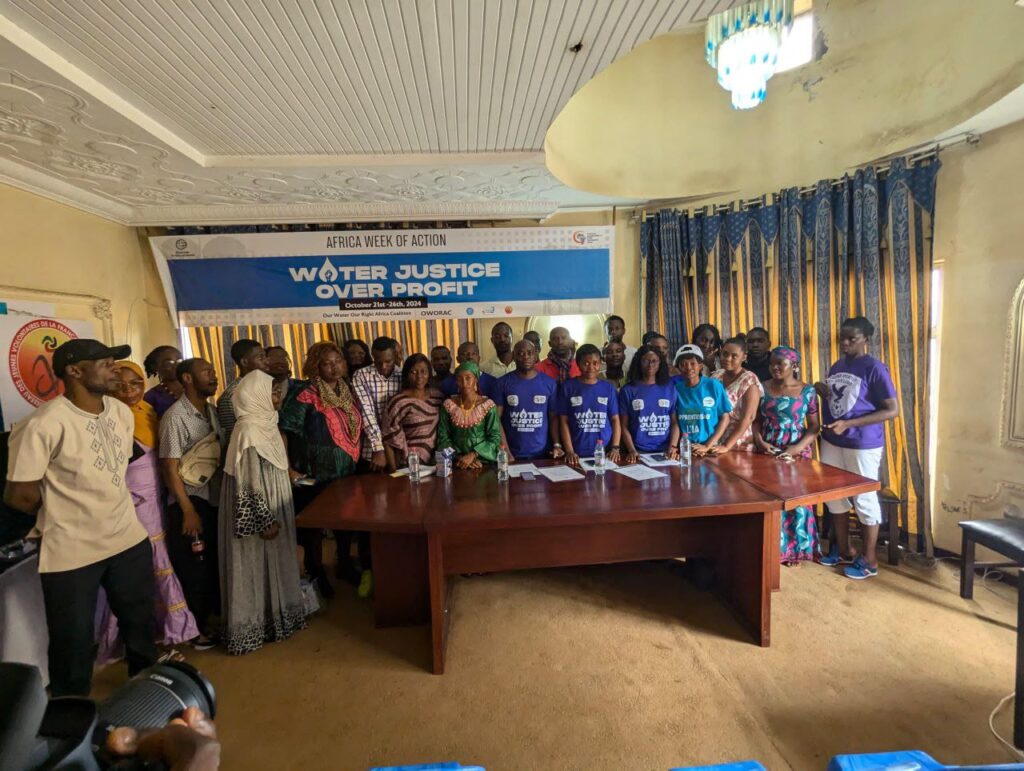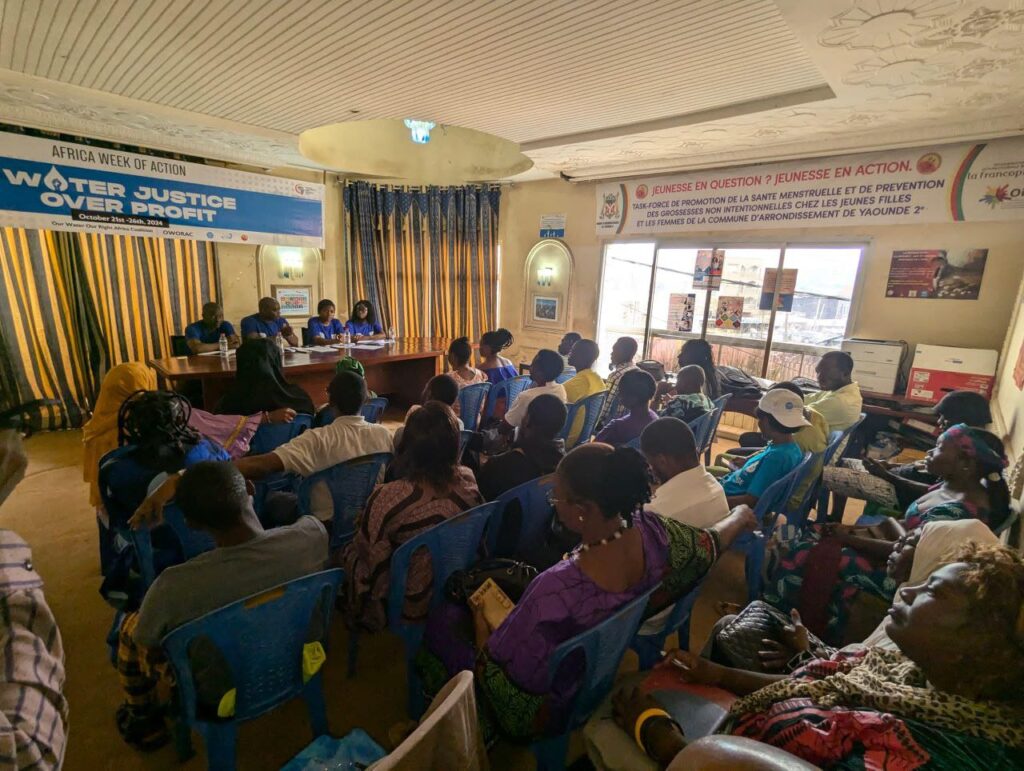The fourth annual Africa Week of Action Against Water Privatisation commenced on October 21, 2024. In commemoration to this, the African Center for Policy and Advocacy (ACPA) in partnership with the Réseau des Jeunes Volontaires Francophonie Cameroun (JVF) organized an event in Yaoundé, on the 26th. This was done to highlight the urgent need for equitable access to safe water across the continent.
Across Africa, various communities are facing challenges to their human right to water. Although Cameroon moved away from water privatisation since 2018, challenges remain, particularly regarding the financial stability of the agency responsible for water distribution.
In Nigeria, international organisations have supported privatisation efforts that have resulted in significant job losses for unionised workers, particularly in Lagos State.
The theme of this year’s event, “Water Justice Over Profit,” focuses on the growing frustration in Africa about government cuts in public spending and also sheds a light on the outside influences and methods that push for privatization.
The participants, mainly young adults, were drilled on the issues of sustainability and climate change, mental health awareness, digital literacy, and social justice. Three new ideas were birthed by the youths present, which were fixated on improving access to water in their communities.

They also got to learn on how health and wellness, technology and innovation, civic engagement, cultural diversity, and personal finance could be affected by the privatization of water, limiting access mostly to poorer communities in the country.
According to a release by ACPA, this year’s theme comes at a crucial moment, as public frustration is growing over rising living costs and government prioritisation of corporate interests over the basic needs of citizens.
In this light, communities, civil society members, and trade unionists from across Africa are joining forces to push for a renewed, community-centered approach to water management that prioritises the needs of the people and the environment.
Meanwhile, in Ghana, corporate negligence related to mining activities has led to severe water contamination, affecting local rivers and threatening the livelihoods of fisherfolk and farmers.
The Africa Week of Action coincides with the annual meetings of the World Bank and International Monetary Fund, serving as a counterbalance to the influence these institutions have on economic policies in the Global South. ACPA stated that, the World Bank and International Monetary Fund have imposed debt and anti-people policies that undermine public welfare and environmental stewardship across Africa, for decades.

Despite widespread public opposition, privatisation of essential services, particularly water systems, continues to be promoted by these same institutions with serious repercussions: rising water costs, compromised livelihoods for public sector workers, and deteriorating infrastructure that ultimately falls back on the state to address.
The primary beneficiaries of these schemes usually are large multinational corporations, such as Veolia and Suez, which extract resources from the continent and transfer profits abroad.
In Senegal, the French multinational Suez manages the country’s water system through a subsidiary called Sen’Eau. This management has led to increased water bills and poor service for residents, as well as harsh working conditions for employees. Recent audits of the privatisation scheme reveal significant financial mismanagement, raising alarms about the sustainability of this model.
Other nations, such as Kenya and Mozambique, face legislative changes that pave the way for further privatisation, raising concerns about access to affordable water services.
According the ACPA’s advocacy officer, Ndang Sandra Mbu, the Our Water Our Right African Coalition aims to promote public accountability and demand an end to corporate practices that deny citizens their right to safe water. Through community engagement, media outreach, and discussions with policymakers, the coalition seeks to amplify the voices of those advocating for water justice.
“The call for action is clear: the human right to water must be protected and fulfilled for all Africans. Achieving water justice requires prioritising public welfare over private profit and committing to participatory governance that addresses the continent’s water challenges. The time for change is now! Access to safe water is a right, not a privilege” she ended.
